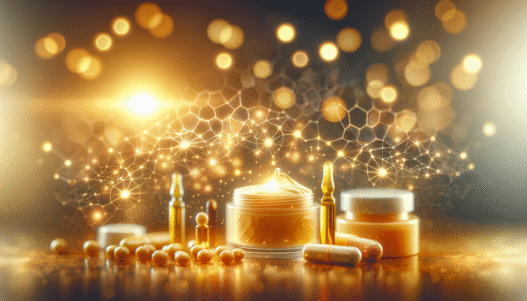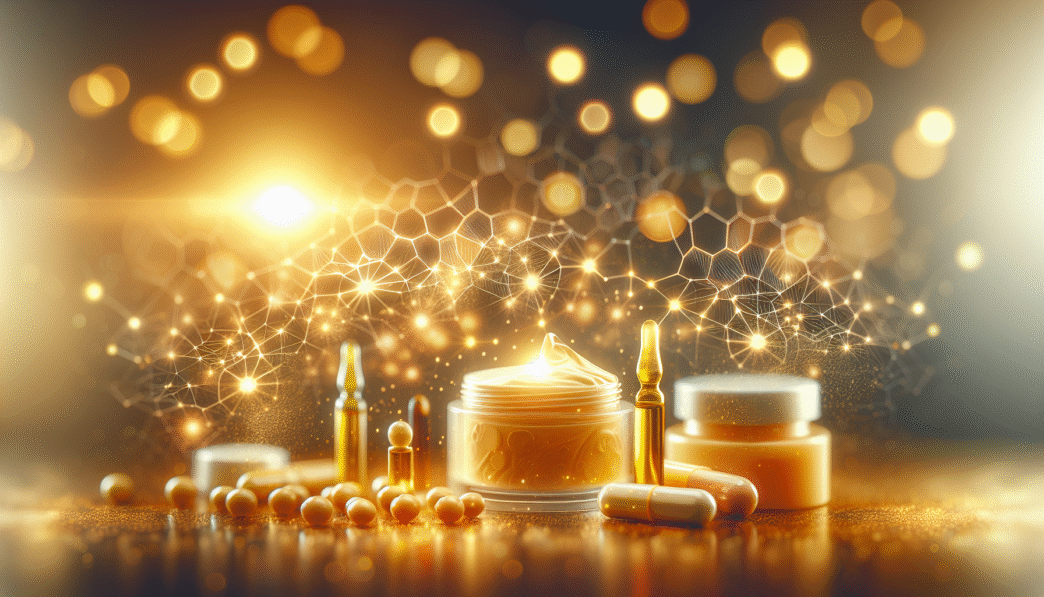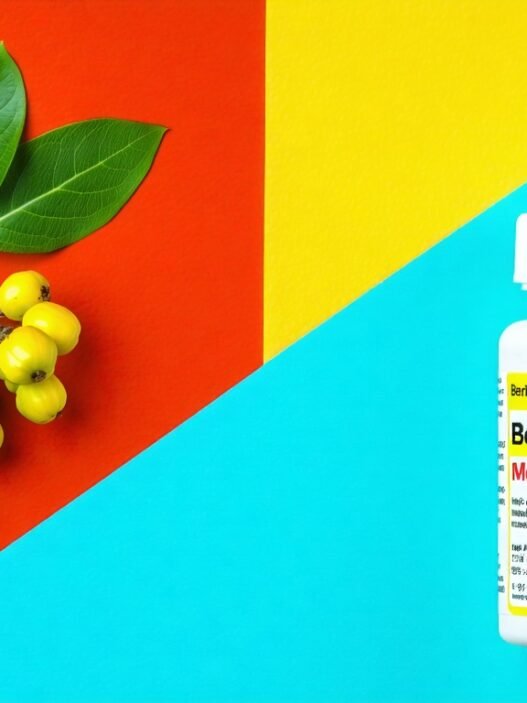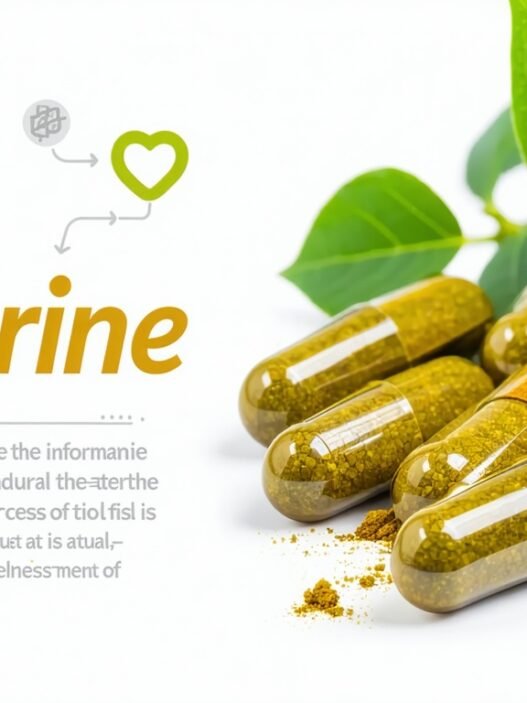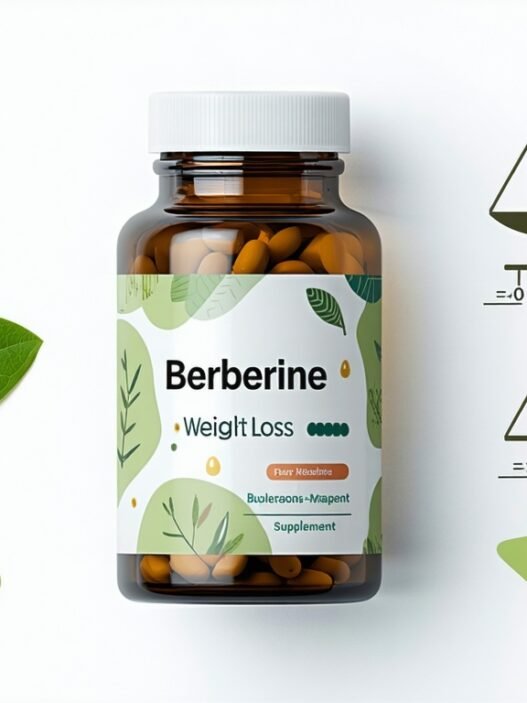Understanding Berberine
Introduction to Berberine
Berberine is a bioactive compound with a long history of use in traditional medicine systems, particularly in China and India. It is primarily derived from several plants, including Berberis vulgaris (barberry), Coptis chinensis (goldenthread), and Phellodendron amurense (Amur cork tree). Research indicates that berberine may possess a range of health benefits, including potential berberine anti-aging effects, making it a promising addition to anti-aging routines.
Studies show that berberine could be beneficial in combating various aging-related diseases. It may also improve health metrics related to longevity and vitality. For instance, experiments with Drosophila melanogaster (fruit flies) demonstrated that those given berberine lived 27% longer and exhibited 39% more physical activity than their counterparts without the compound (FoundMyFitness).
Sources of Berberine
Berberine can be sourced from several plants known for their medicinal properties. The following table outlines some common sources:
| Plant Source | Common Name | Active Component |
|---|---|---|
| Berberis vulgaris | Barberry | Berberine |
| Coptis chinensis | Goldenthread | Berberine |
| Phellodendron amurense | Amur Cork Tree | Berberine |
| Hydrastis canadensis | Goldenseal | Berberine |
These plants are often used in various forms, including capsules, powders, and tinctures. The popularity of berberine supplements has surged due to its potential benefits in health and longevity. It is important to consider the source and quality of berberine products for optimal results. For those interested in how berberine affects aspects like gut health or blood pressure, additional information can be found on links such as berberine and gut health and berberine and blood pressure.
Utilizing berberine as part of a holistic approach to anti-aging may provide health benefits that enhance physical vitality and combat the signs of aging effectively. Furthermore, understanding the sources and mechanisms of action behind berberine can empower individuals to make informed decisions regarding its use in their wellness routines. For further reading on its effects on aging, see berberine anti-aging research and berberine anti-aging properties.
Anti-Aging Benefits
Berberine and Longevity
Berberine has garnered attention for its potential anti-aging effects, particularly in relation to longevity. Recent studies have demonstrated that berberine extends the lifespan of C. elegans, a widely used model organism in aging research. Research published in 2025 indicates that berberine’s multi-target synergistic antioxidant effects play a crucial role in this longevity outcome (MDPI).
In the same study, it was revealed that berberine affects the Insulin/IGF-1 signaling pathway, which is known to regulate longevity and aging processes (MDPI). These findings suggest that incorporating berberine into a holistic wellness routine could aid in extending lifespan and improving quality of life as one ages.
Additionally, berberine has been shown to enhance the lifespan of chemotherapy-treated mice by approximately 52% and to extend the lifespan of naturally aged mice by around 16.49%. The residual lifespan of these mice increased significantly, showcasing improvements in health span, fur density, and behavioral activity (Aging Cell).
Mechanisms of Action
The mechanisms through which berberine exerts its anti-aging effects are linked to its ability to activate certain biological pathways and provide protection against oxidative stress. Berberine functions as an antioxidant, helping to neutralize free radicals that contribute to cellular damage and aging. This action supports cellular health and longevity.
Berberine’s influence on the Insulin/IGF-1 signaling pathway is significant, as this pathway is critical for regulating metabolism, growth, and aging. By modulating this pathway, berberine may help maintain metabolic balance and promote healthier aging.
Moreover, berberine has demonstrated properties that enhance autophagy, a vital cellular process that removes damaged components, thereby promoting cellular rejuvenation and longevity. This process can assist in cellular maintenance and help reduce the effects of age-related decline.
For those curious about the specific effects of berberine on aging, more information can be found in our articles on berberine anti-aging research and berberine anti-aging mechanisms. By understanding the biological actions of berberine, individuals can make informed decisions about its incorporation into their anti-aging strategies.
Health Effects of Berberine
Impact on Diabetes
Research indicates that berberine exhibits significant effects on blood sugar levels, making it an essential supplement for those managing diabetes. Studies demonstrate that berberine can lower blood sugar levels in individuals with type 2 diabetes, showing efficacy comparable to specific oral diabetes medications like metformin, glipizide, and rosiglitazone. A daily dosage of 1 gram of berberine has been associated with a 20% reduction in fasting blood sugar and a 12% decrease in HbA1c levels, which measures long-term glucose control (Healthline).
| Measurement | Reduction (%) |
|---|---|
| Fasting Blood Sugar | 20 |
| HbA1c Levels | 12 |
Effects on Weight and Body Composition
Berberine has also been linked with weight loss and beneficial changes in body composition. Clinical research has shown that individuals taking berberine experienced reductions in total cholesterol, triglycerides, and LDL cholesterol levels, alongside increased HDL cholesterol levels compared to placebo groups. This combination contributes positively to overall metabolic health and weight management.
In addition to its cardiovascular benefits, berberine supplementation has demonstrated effectiveness in promoting weight loss, making it appealing for those looking to improve their overall body composition. The reductions in serum total cholesterol and triglycerides may also enhance feelings of satiety, further aiding in weight management. More information on these metabolic effects can be found in our article on berberine benefits.
| Health Metric | Change |
|---|---|
| Total Cholesterol | Decreased |
| LDL Cholesterol | Decreased |
| HDL Cholesterol | Increased |
| Triglycerides | Decreased |
Cardiovascular Benefits
Berberine’s influence on cardiovascular health is noteworthy. Studies reveal that it reduces serum total cholesterol, LDL cholesterol, and triglycerides while elevating HDL cholesterol levels. These changes are beneficial in decreasing cardiovascular disease risk factors. The mechanisms by which berberine acts include improving lipid profiles and enhancing metabolic function, which may contribute to overall heart health.
In clinical settings, individuals supplementing with berberine have shown significant improvements in these cardiovascular metrics compared to those receiving placebo treatments, demonstrating its potential as a heart-friendly aid. For interested readers, further details on how berberine affects heart health can be explored in our articles on berberine and blood pressure and berberine and cholesterol.
Additional Health Benefits
Potential Effects on Mental Health
Berberine may hold promise in the realm of mental health, with studies suggesting potential benefits for various conditions such as depression and anxiety. It has been observed to delay the onset and reduce the severity of hypertension, which is linked to mental health, by lowering inflammatory markers in a rodent model (FoundMyFitness).
Berberine’s influence on the gut and intestine also suggests a connection to mental health, especially considering the growing interest in gut-brain interactions (FoundMyFitness). As gut health is increasingly recognized for its role in mental well-being, this connection highlights the systemic impact berberine could have on an individual’s overall mental state.
Table summarizing potential effects of berberine on mental health:
| Effect | Description |
|---|---|
| Depression | May help alleviate symptoms of depression. |
| Hypertension | Reduces severity linked to mental health issues. |
| Gut-Brain Interaction | Influences gut health, which is connected to mood and cognition. |
| Inflammatory Markers | Lowers inflammation, potentially impacting mood-related conditions. |
Anti-Inflammatory Properties
Berberine is recognized for its anti-inflammatory properties, which can contribute significantly to overall health. It has been shown to reduce the development of a senescent phenotype in cells, indicating its potential in addressing inflammation-related conditions, including mental health issues. This ability to modulate inflammation may provide protective mechanisms against conditions such as chronic stress and other age-related health concerns.
Berberine’s anti-inflammatory effects may extend to supporting bone turnover biomarkers, thereby influencing hormonal regulation which can further impact mental health.
Table summarizing the anti-inflammatory benefits of berberine:
| Anti-Inflammatory Effect | Description |
|---|---|
| Inflammation Reduction | Decreases inflammatory markers in the body. |
| Cellular Senescence | Reduces cell aging and related inflammation. |
| Bone Health | Supports hormonal regulation and bone turnover. |
The combination of these health benefits reinforces the potential of berberine to play a significant role in both physical and mental wellness, including possible implications for berberine anti-aging effects. By addressing inflammation and supporting mental health, berberine emerges as a valuable addition to holistic wellness strategies. More insights can be found by exploring berberine benefits and how they contribute to a comprehensive health regimen.
Usage and Dosage
Understanding the appropriate usage and dosage of berberine is crucial for maximizing its potential benefits, particularly its berberine anti-aging effects. This section outlines the recommended dosage and addresses the safety and side effects associated with berberine supplementation.
Recommended Dosage
The optimal dosage of berberine can vary based on individual needs and health goals. Typically, a standard dosage range is around 900 mg to 1,500 mg per day. This can be divided into two or three doses to enhance absorption and minimize gastrointestinal discomfort.
| Dosage Category | Amount (mg) | Frequency |
|---|---|---|
| General Health | 900 – 1,200 | 2-3 times daily |
| Blood Sugar Management | 1,000 – 1,500 | 2-3 times daily |
| Anti-Aging Effects | 1,200 – 1,500 | 2-3 times daily |
It is advisable to consult with a healthcare provider before starting any new supplement regimen, especially for individuals with existing health conditions or those taking medications.
Safety and Side Effects
Berberine is generally recognized for its excellent safety profile. However, like any supplement, it may cause side effects, particularly related to digestion. Commonly reported side effects include:
- Diarrhea
- Constipation
- Bloating
Individuals taking medications for blood sugar control should consult a healthcare professional prior to using berberine, as it may interact with these medications (Healthline).
In rare cases, more severe side effects may occur. Awareness of one’s personal tolerance and potential interactions with other treatments is essential. Monitoring how the body reacts to berberine, especially during the initial days of use, can help ensure a positive experience.
For further information on the benefits and uses of berberine, explore our articles on berberine benefits and berberine supplements.
Research Findings
Studies on Berberine
Recent research has highlighted the potential of berberine in promoting health and combating the aging process. Studies have shown its effects on various biological models, including the following:
- C. elegans: A 2025 study demonstrated that berberine extends the lifespan of the nematode Caenorhabditis elegans through multi-target synergistic antioxidant effects and via the Insulin/IGF-1 Signaling Pathway (MDPI).
- Fruit Flies: Studies in fruit flies indicated that those administered berberine lived 27% longer and exhibited 39% more physical activity compared to control groups, suggesting significant potential for enhancing longevity and vigor (FoundMyFitness).
These findings support the notion that berberine might play a role in longevity and vitality, emphasizing its valuable effects in the context of anti-aging research.
Clinical Evidence and Future Research
Clinical studies have begun to affirm the benefits of berberine beyond basic research. It has shown promising results in several areas:
-
Gut Health: Berberine exhibits beneficial effects in the gut and intestinal health, with data indicating its potential use in treating inflammatory bowel diseases and irritable bowel syndrome (IBS). Reports indicate a decrease in diarrhea frequency, abdominal pain, and urgency in patients taking berberine (FoundMyFitness).
-
Metabolic Health: Berberine has been noted for improving lipid profiles and managing blood glucose levels. Its mechanisms of action include the activation of AMP-activated protein kinase (AMPK) and inhibition of inflammatory pathways. This suggests it may help combat aging-related diseases, such as type 2 diabetes and cardiovascular disorders (FoundMyFitness).
Future research is likely to explore the broader implications of berberine on other age-related conditions, such as cognitive decline and cellular health. Continued investigation into the comprehensive benefits of berberine could further solidify its role in the realm of anti-aging strategies. For additional insights, please refer to the sections on berberine anti-aging properties and berberine and longevity.










